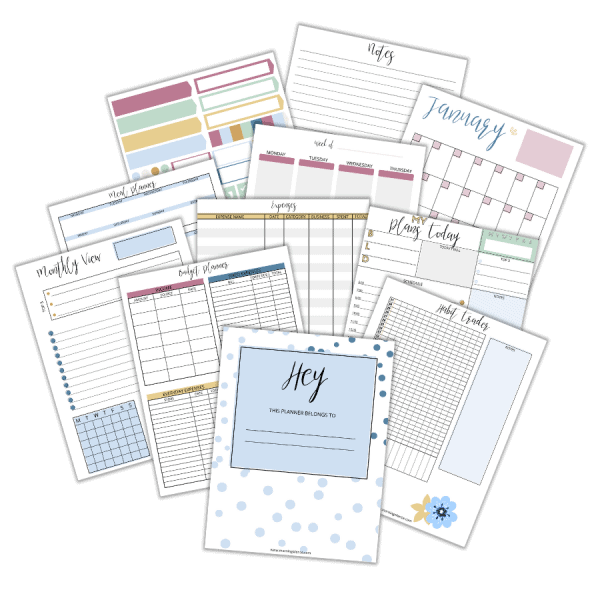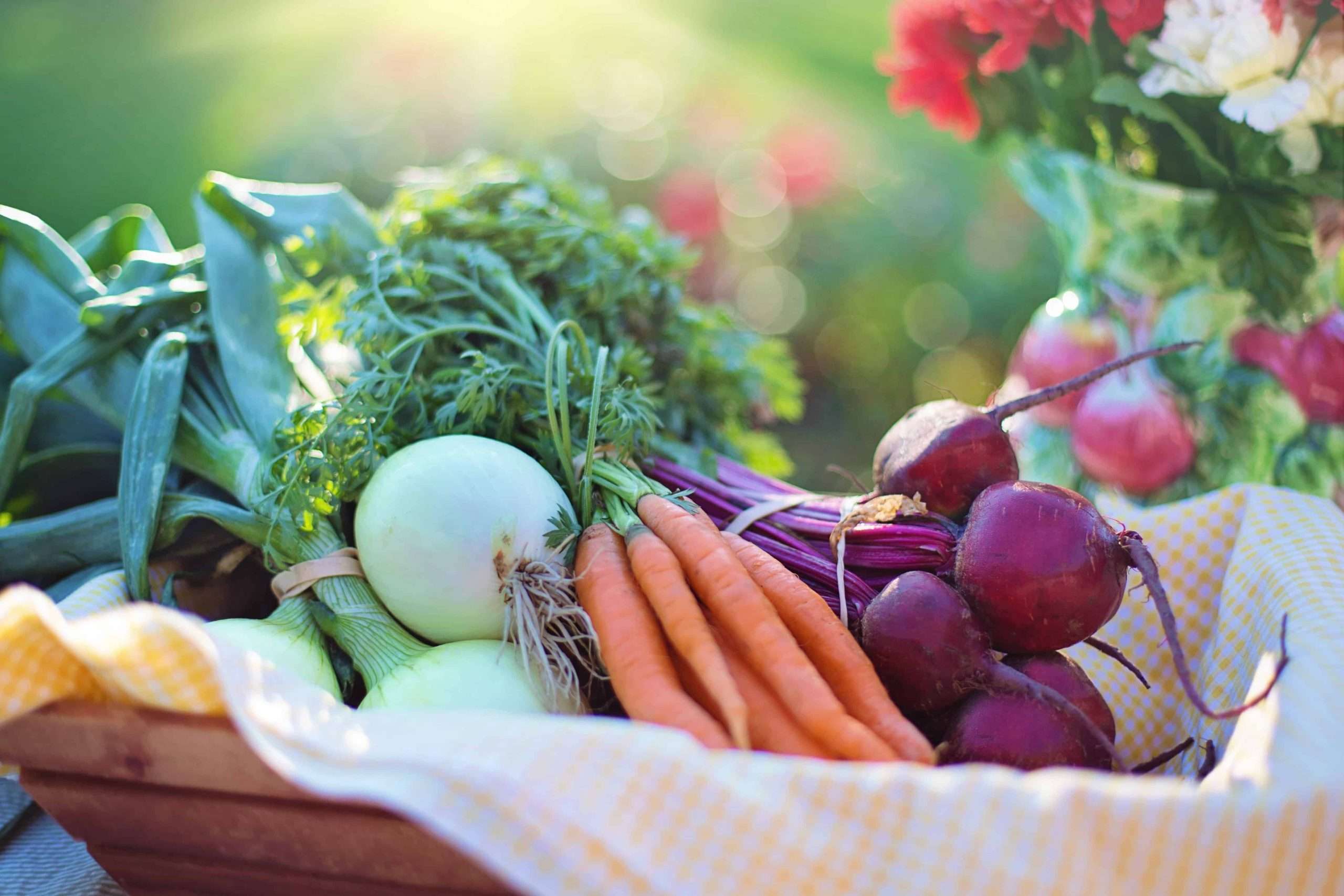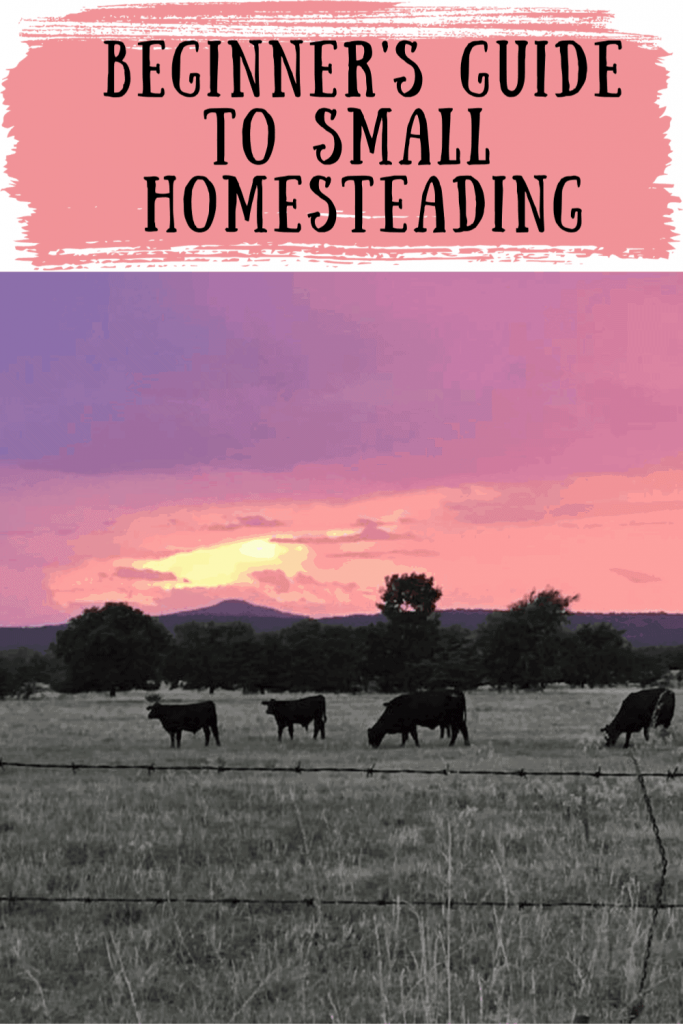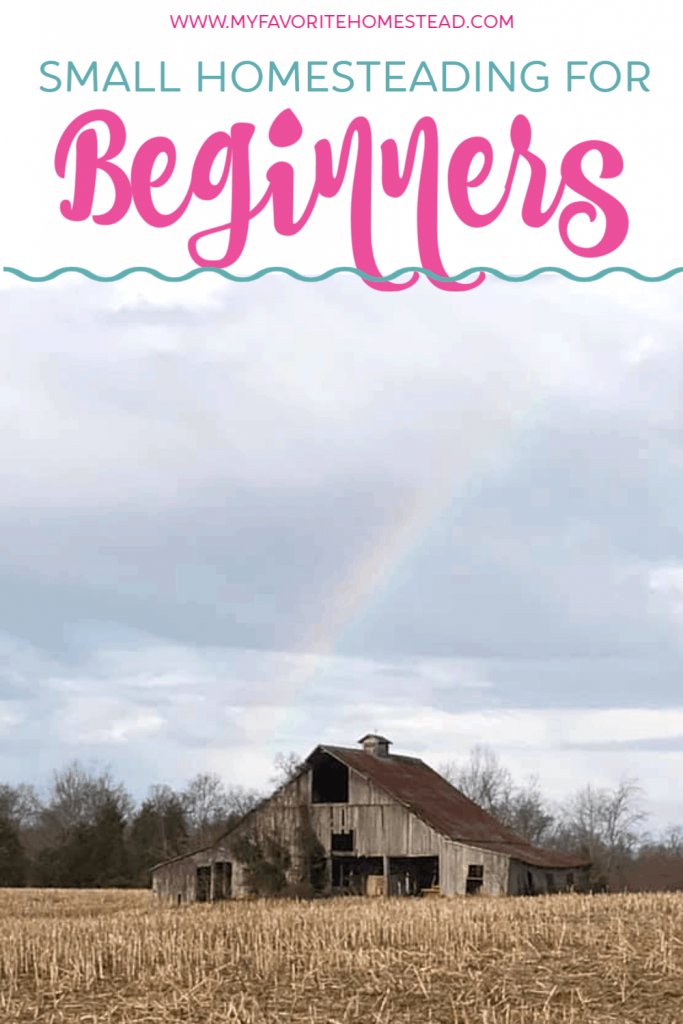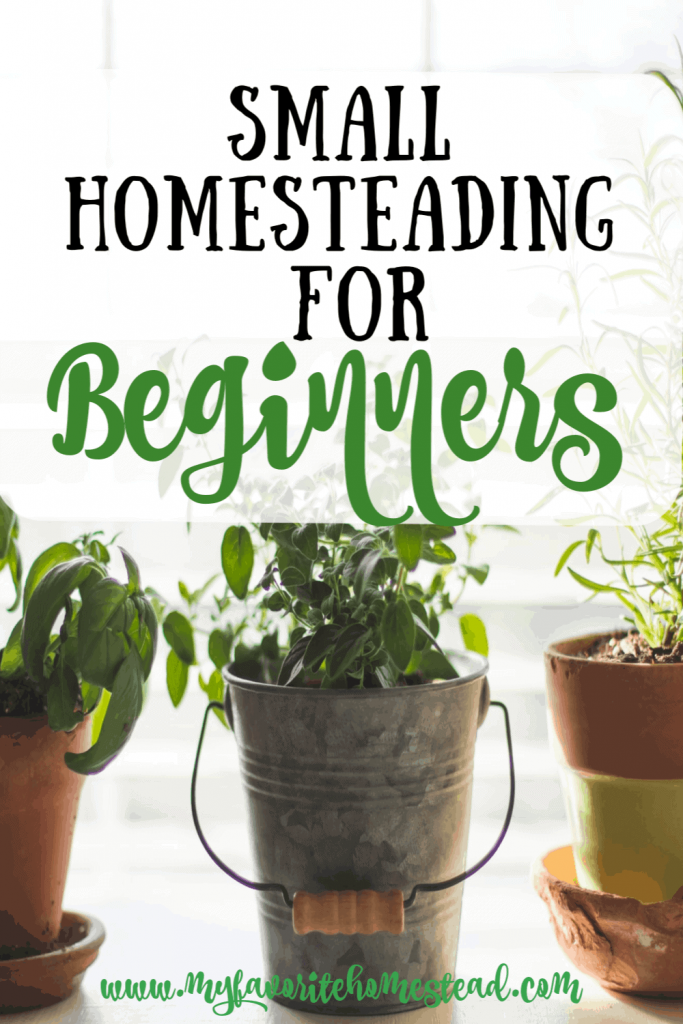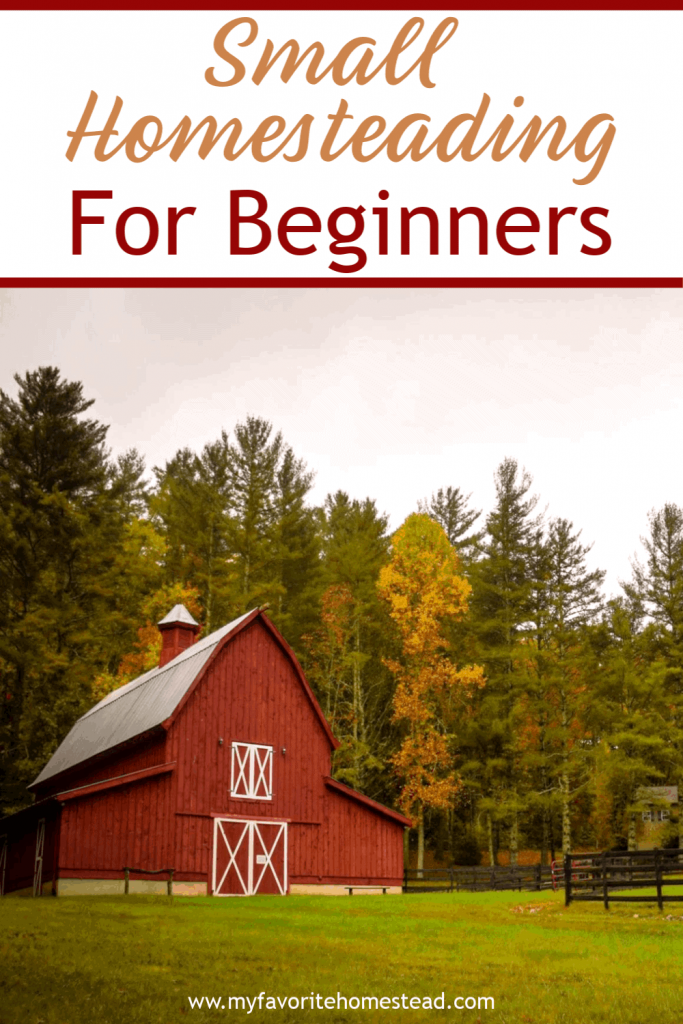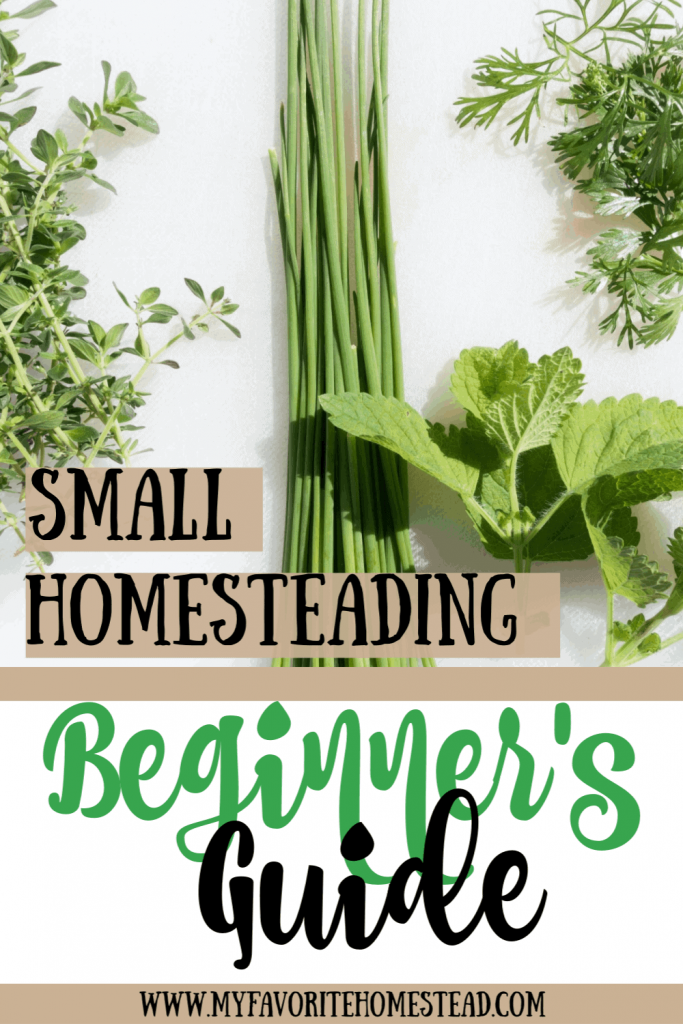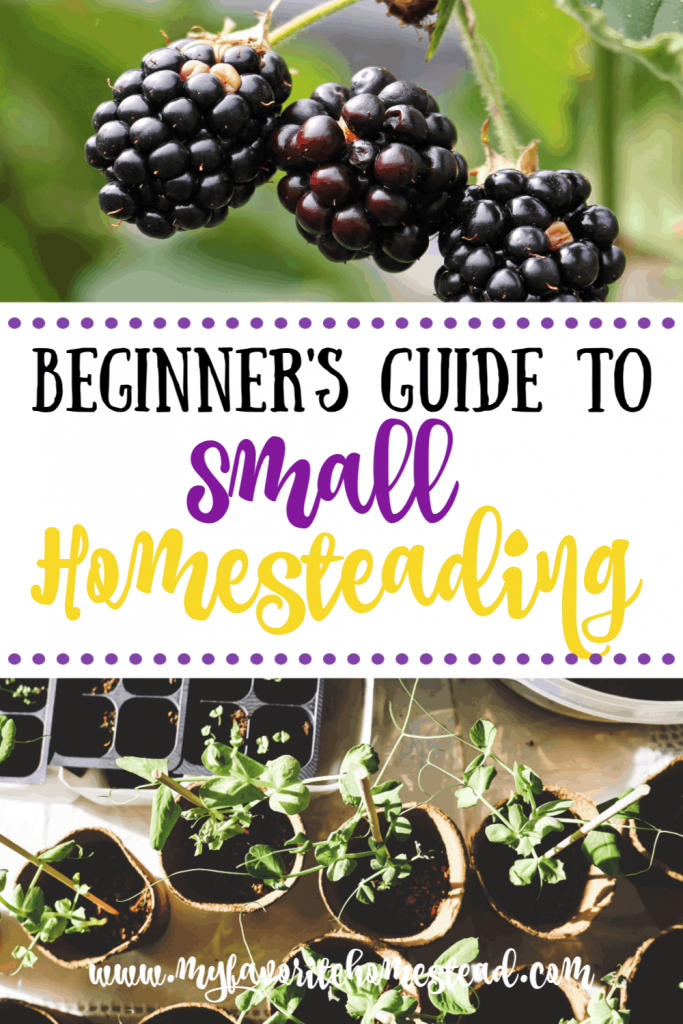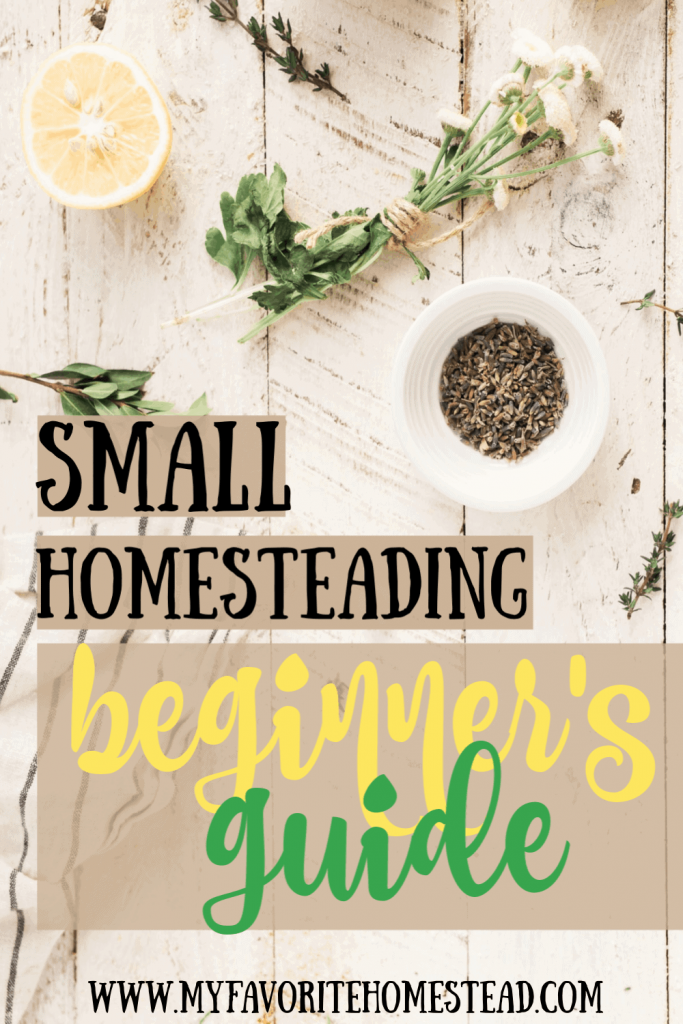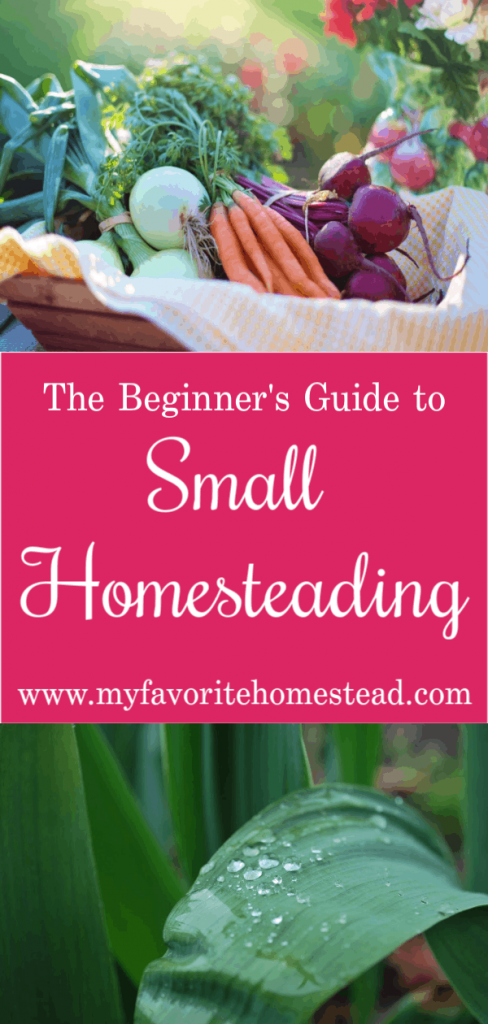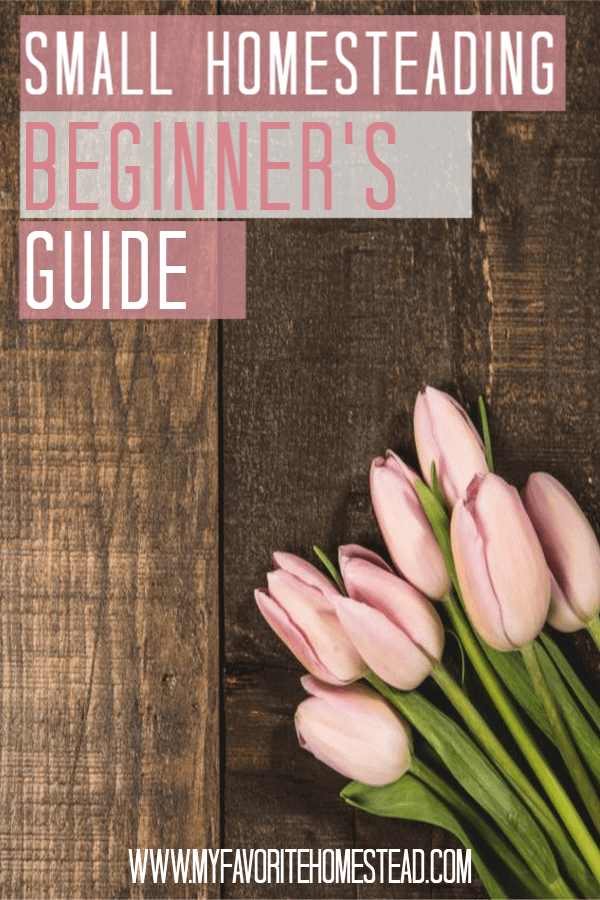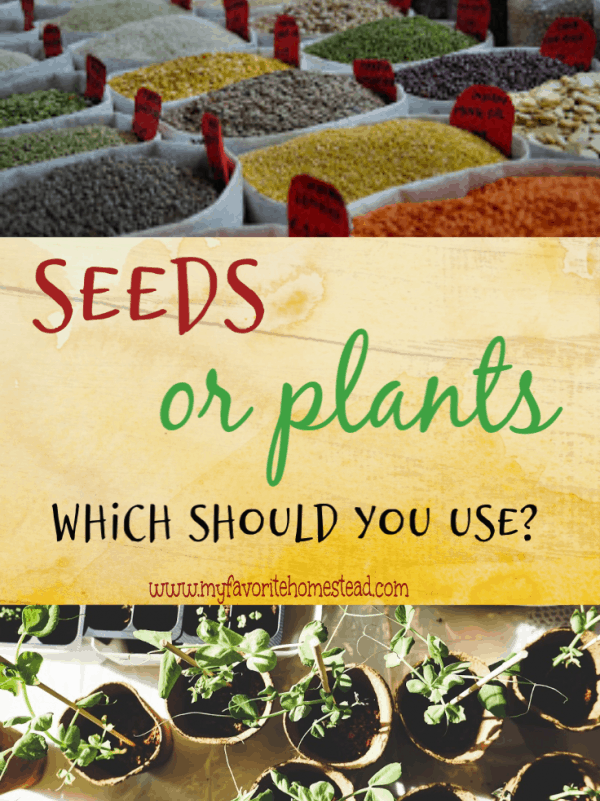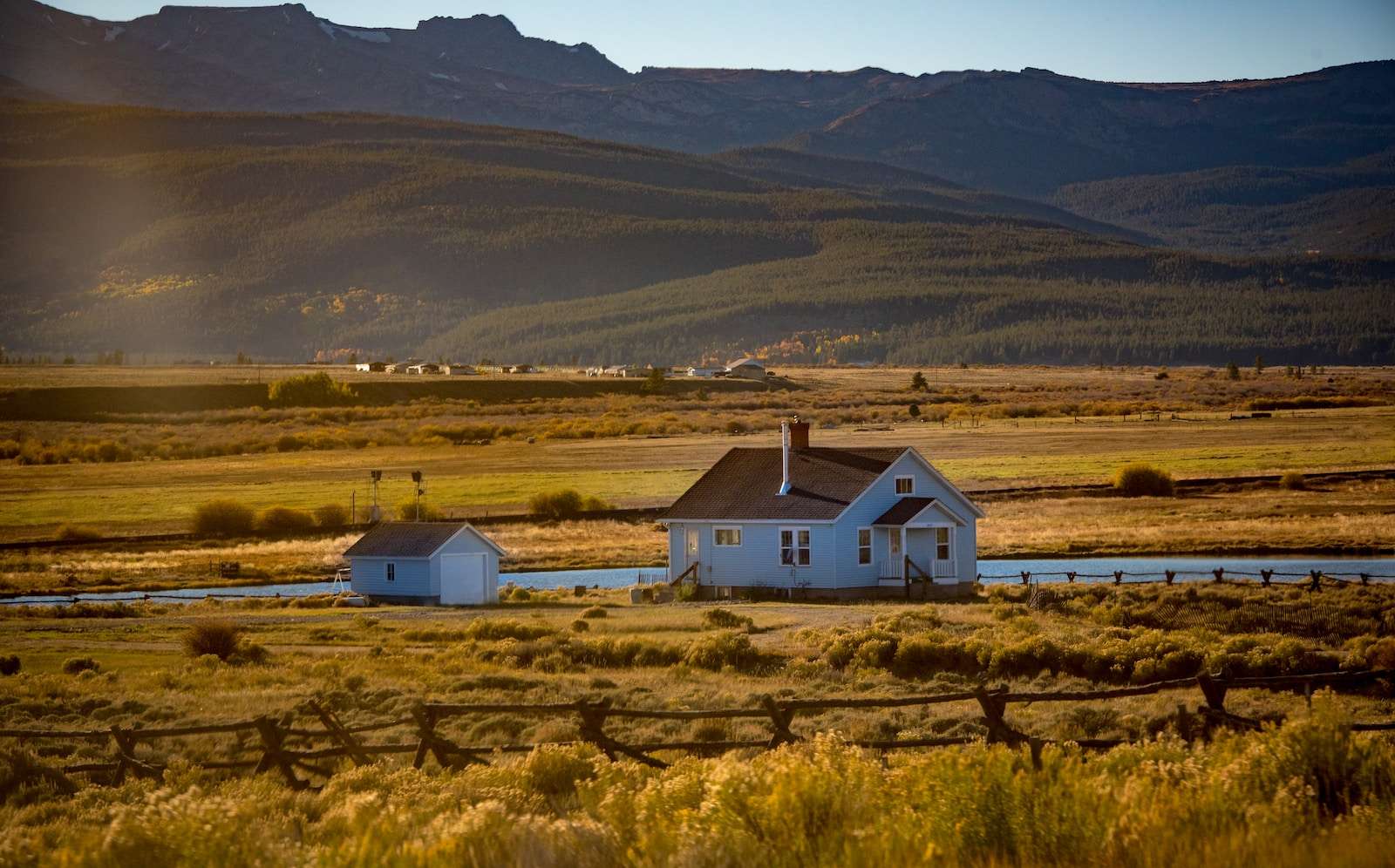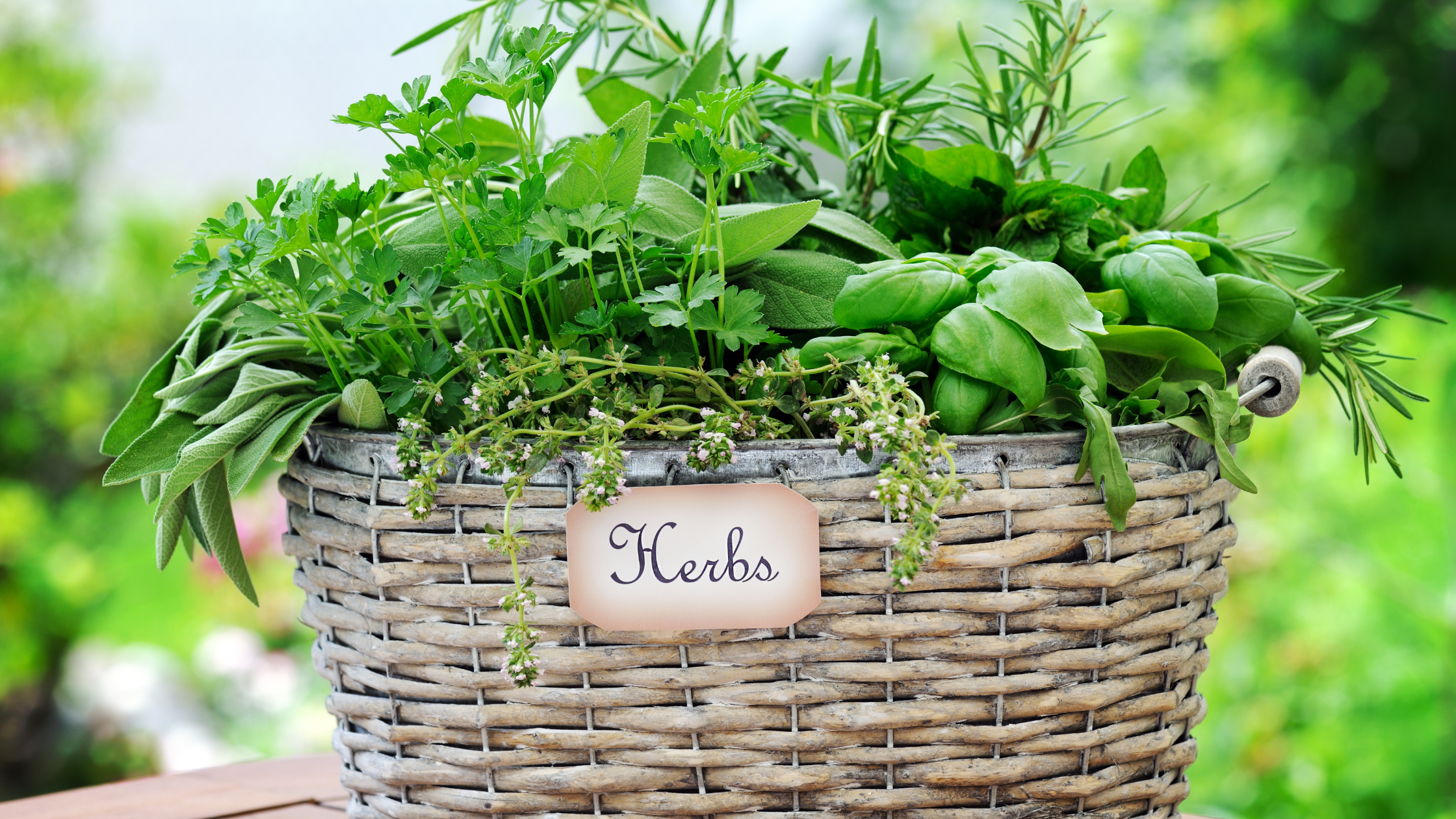Small Homesteading: The Beginner’s Guide
Small homesteading is a great place to begin the homesteading experience. With all the concerns regarding food quality, it is important to know where your food comes from.
Many people are attracted to small-scale homesteading for its potential to provide food security, and it’s an economical way to produce fresh, local produce. With the right plan and a little bit of dedication, you can create a thriving small homestead that is both productive and enjoyable.
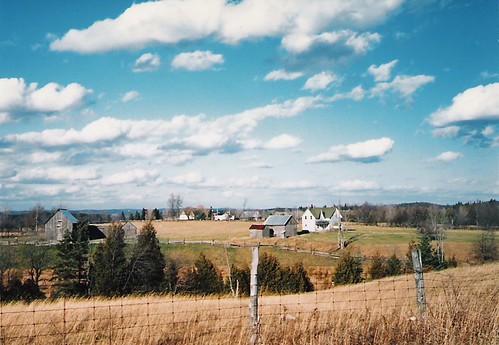
My husband and I both grew up growing, preserving, and enjoying our own food. We now have a small homestead of around five acres.
Since we’ve been married (almost 20 years now!), we consistently have a garden, raise some animals, and attempt to learn from the older generation. Homesteading comes with a lot of trial and error, and I hope to share some tips we’ve learned along the way.
One property we had was just a very small yard but were able to raise enough to feed our family pretty well for an entire year! It requires some hard work and dedication, but the joys of knowing that you have contributed to caring for your own family in such a personal way make it all worth it.
What is small homesteading?
Homesteading nowadays is not the traditional definition of the government giving away land in exchange for people working the land to earn it.
Homesteading means many different things to different people. In my mind, homesteading is making a home while trying to be more self-sufficient.
Homesteading is often misunderstood as requiring a large plot of land and a huge investment. However, homesteading can be done on any sized lot, even small urban lots. Small scale homesteading can include growing vegetable and herbs in containers, raising chickens or bees for eggs or honey, and keeping a small flock of sheep or goats for fiber or meat.
Regardless of the size of your homestead, there are many benefits that can come from living a more self-sustaining life. From learning new skills to connecting with nature and providing fresh food for your family, small scale homesteading is an exciting way to increase sustainability and be more self-reliant.
If you have a windowsill that you can place a planter on, you can get started!
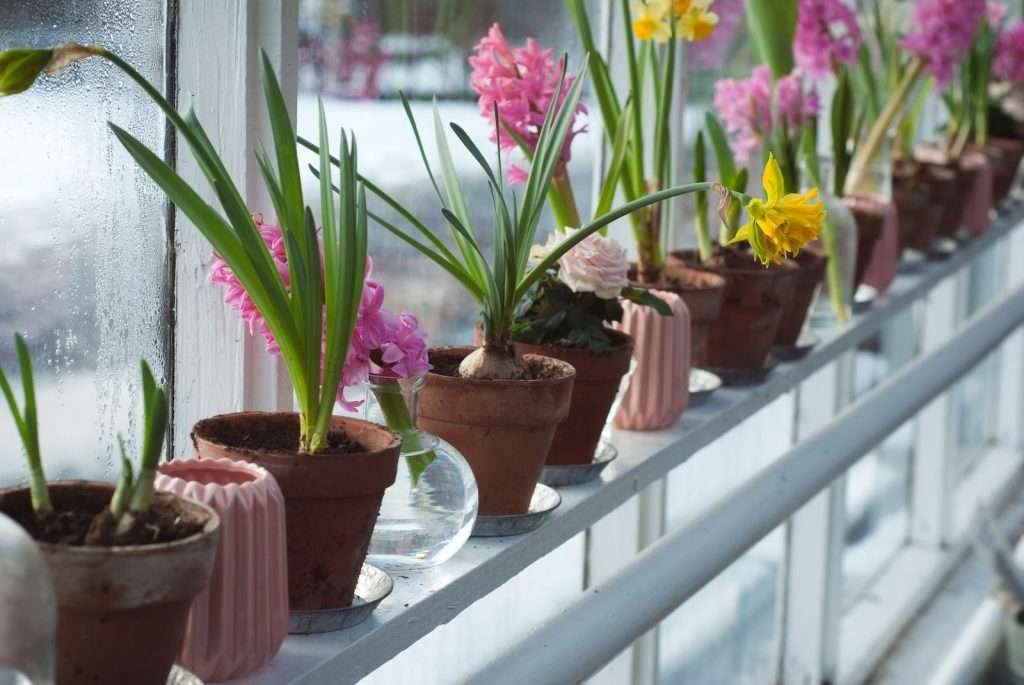
How to get started
Start SMALL! I can’t stress this enough. If you are brand new and have never grown anything, start with one thing in a container.
Gardening
Herbs in containers are a fantastic way to get started. They take up a small space and can be placed on a balcony or just outside somewhere. You’ll be surprised that even one herb plant can produce more than you can use. Learn about herb container gardening here.
As far as starting a backyard garden, use a tiller to break up the ground and amend your soil if needed for your garden spot or build raised beds and fill with good soil. My hubby is a stickler for straight rows so he uses a string attached to two stakes at the end of the rows and uses a hoe to make the line to plant seeds or his pepper plants. (If you’re trying to decide whether to use plants or seeds in your garden, check out this post)
Raising Animals
If you have space for animals, again start with just one or two to learn how to care for them before branching out. I highly recommend beginning with plants and produce before branching out to animals. You can have animals even on a small homestead. We only have chickens, cats, and dogs right now but would love to get started with goats one day.
Animals for Food
Our neighbors raised rabbits for meat. Personally, this is just not for me. My husband and boys love deer hunting. It takes about 4 deer to feed our family for almost a year. We process the deer ourselves. All the hard work of skinning, hanging, brining, grinding, cutting, and packaging.
Yes, a lot of work, but when we’re done we have enough to eat. A lot of people aren’t fans of venison but obviously we don’t mind the taste. I’ve had people say, “The way I fix it you can’t tell the difference between venison and beef. Well, I’ve eaten venison my whole life and I don’t care what you do to it, deer meat has a distinct flavor.
We’ve also butchered and processed our own hog. This one was a little trickier than deer meat but we made it through an it was delicious.
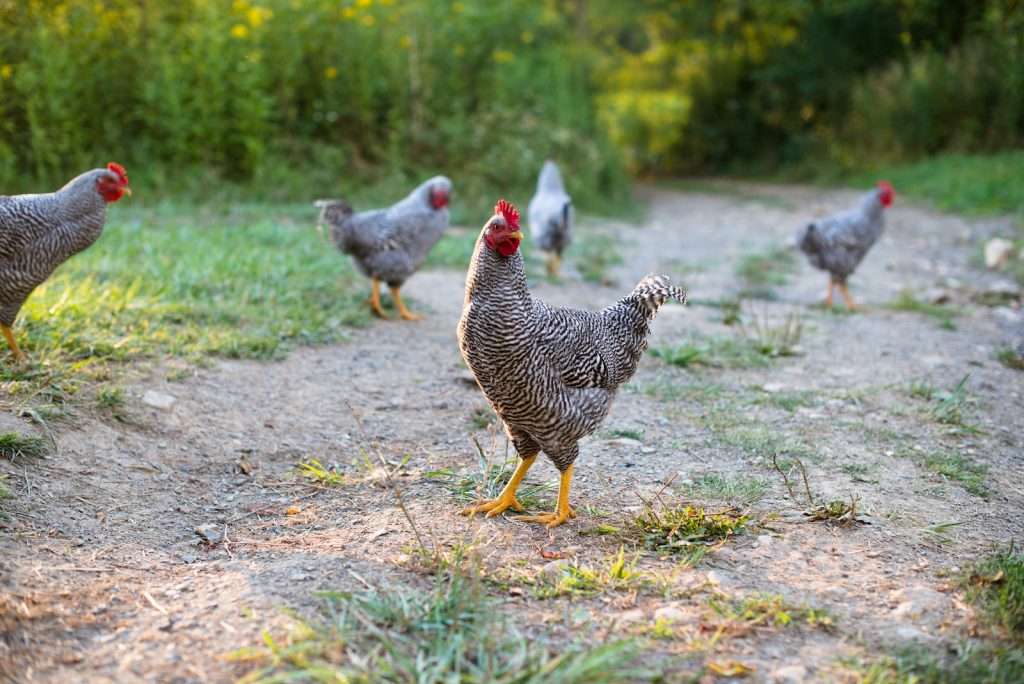
Tips for Success in Small Scale Homesteading
- Start small. Pick your favorite herb and learn how to grow, care for, harvest, use, and preserve.
- Be patient with yourself. You will make mistakes along the way. Some years are just better for some crops than others. It’s all part of the process.
- Start composting. Compost improves whatever soil you have.
- Build a rainwater collection system. The first home we lived in had a well and a cistern. We collected the rainwater in the cistern that fed the house. For the well we used a 5 gallon bucket and a rope to water our flowers and crops.
- Grow blackberries. These are an easy crop to grow and fetch a pretty good price per gallon. Easily double your crop by propagating blackberries.
- Don’t give up! The crop that didn’t do well this time may be your best one next time.
Small homesteading is a wonderful way to become more self-sufficient, live sustainably, and make the most of your space. It can be done on a small scale with just a few animals, vegetables, and fruit trees.
By growing some of your own food and raising animals for meat or eggs, you can save money while also enjoying the satisfaction that comes with producing your own food. You can also enjoy the peace and quiet of rural living, while still being close to city amenities.
Love Hot Sauce?
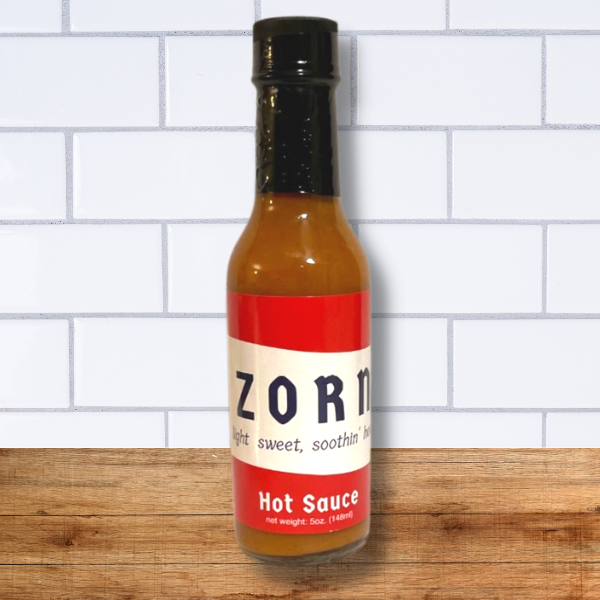
ZORN Hot Sauce, Gourmet Hot Sauce with Carolina Reaper Peppers, Lightly Sweet, Soothin’ Heat. Awesome Flavor Experience in a Bottle, 5 oz.
If you’re looking to learn more about small scale homesteading, there are countless online resources and books that can help you get started. With the right tools and information, you can begin living a simpler life with a smaller footprint.
An investment in time and energy will go a long way towards creating a self-sufficient lifestyle that works for you. So if you’re looking to live a more sustainable life, small scale homesteading may just be the perfect fit for you!

Common Questions/FAQ
What is the first thing I should do?
- The first thing you should do is plan. Plan the size of your project and research what you want to begin with. Whether it’s container gardening, starting a backyard garden, canning your food, raising animals, or just baking your own bread, these small homesteading skills can all be learned over time. Pick your number one thing to focus on and master before moving to the next thing.
Do I have to have a large acreage?
- It depends is the most concise answer. You can homestead anywhere! An apartment, balcony, small yard, five acres or less, or hundreds of acres can all be the right size for homesteading.
What are the best animals to have?
- The first animals I would try would be chickens. Depending on the breed, chickens can be very docile and good layers. If you are looking just to have eggs for your own family and are not looking to sell them, three or four would be plenty.
What do I need to do to prepare the ground?
- Preparing the ground needs to start in the fall. If you till, that is the time to do it and add any natural fertilizer. If you apply natural fertilizer (aka manure) in the spring, you could burn up your crops.
What is the easiest thing to grow?
- I find the easiest things to grow in our area are peppers of all kinds. Although, my sister said she always has difficulty with peppers. But we’ve grown and sold bell peppers, banana peppers, cayennes, habaneros, and Carolina Reapers. My hubby makes a fantastic hot sauce that everyone pretty well loves.
What is the easiest thing to preserve?
- Preserving onions, garlic, and potatoes are pretty straightforward and don’t require canning, blanching and freezing ro dehydrating unless you just want to.
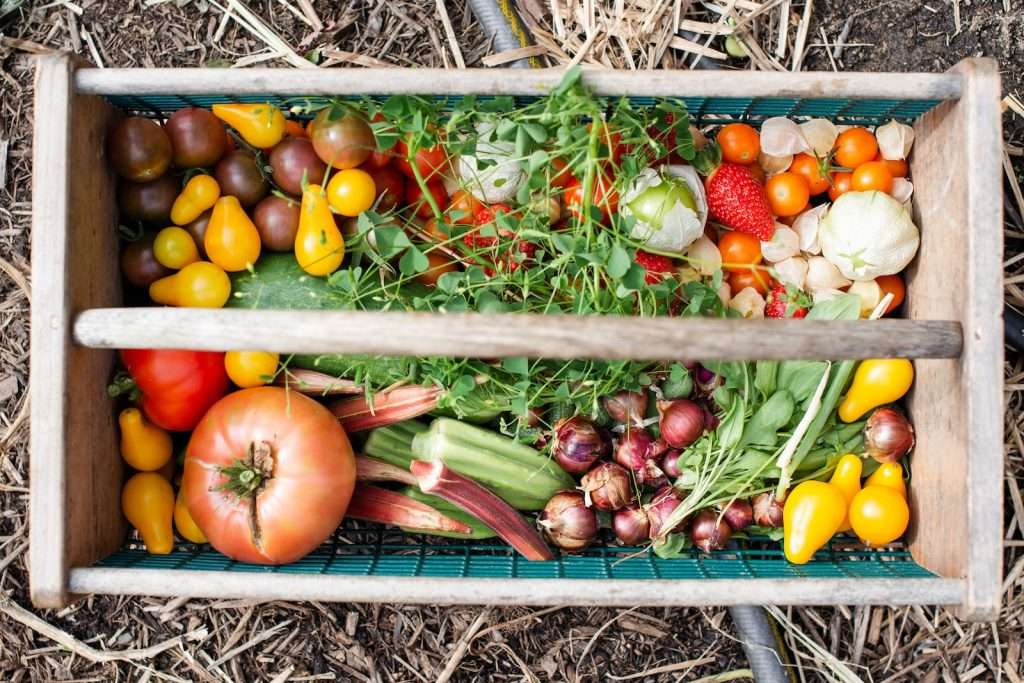
The Last Thing You Need to Know about Homesteading
The main thing to know about small homesteading is that it can be accomplished in a very small space, even a windowsill can get you started. You decide what works for you. Starting with a small homestead, being patient, and expanding a little at a time are key when beginning.
In conclusion, small scale homesteading is a great way to provide for your family while living in harmony with nature. Whether you are looking to grow food, raise livestock, or just enjoy the beauty of rural living, there is something for everyone.
With some planning and preparation, small homesteading can be a rewarding experience that will benefit you, your family, and the environment. With dedication and hard work, homesteading can be an enjoyable lifestyle that will provide years of satisfaction. Good luck!
If you liked this post, please share/comment/subscribe!
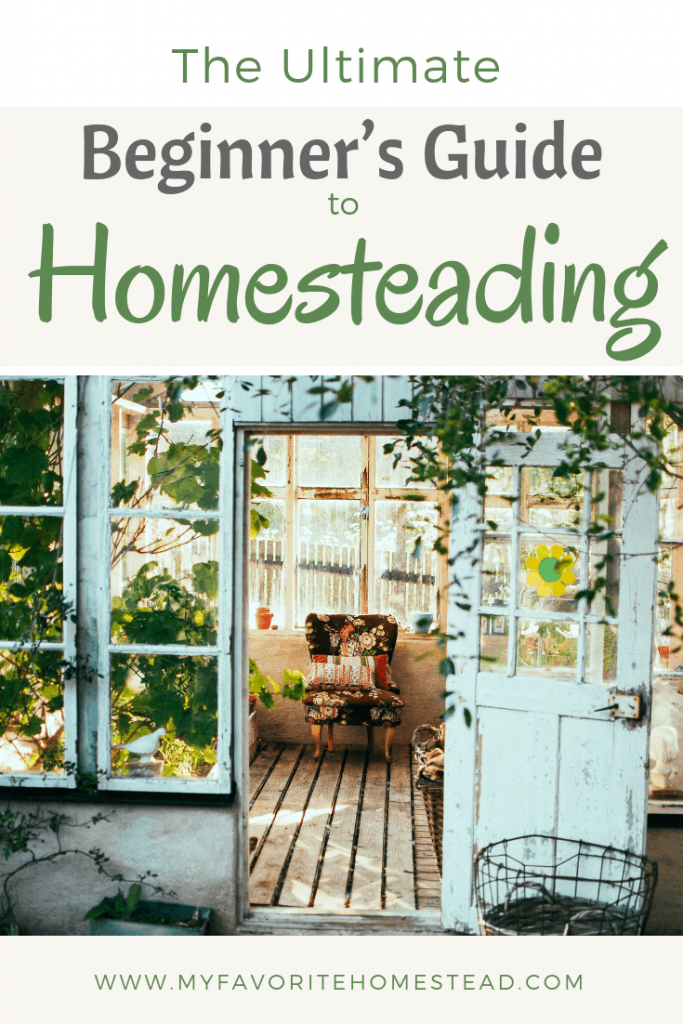
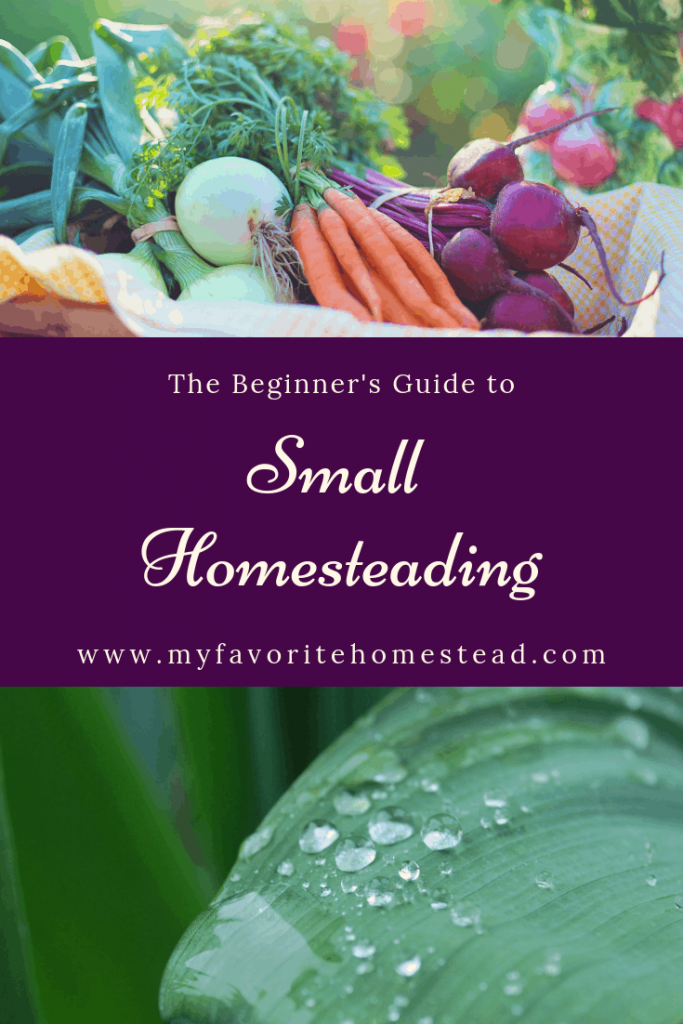
Plan Your Life Like a Boss! Free Planner
- Use these free planner printables to take control of your life.
- Includes budget, meal, and project planner inserts.
- Undated to use over and over again!
Sign up to get your free planner today!
